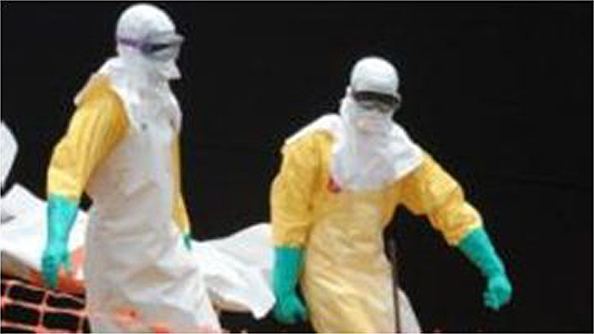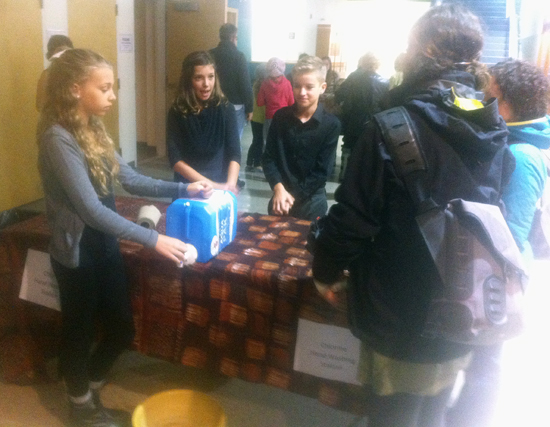
By David F. Rooney
Revelstoke’s small effort to help Doctors Without Borders and a tiny rural radio stationin Sierra Leone yielded fruit on Saturday evening, October 18, when 100 people attended the documentary film, Ebola War: The nurses of Gulu, at the Performing Arts Centre and donated $1,500.
“I counted our funds received, which totaled $1,500 — $1,275 to Médecins Sans Frontières and $255 to our local initiative, Radio Bintumani,” said Erin Wilkins.
“$255 will give us 49 gallons of fuel which will provide enough fuel for 5 weeks of additional programming.”
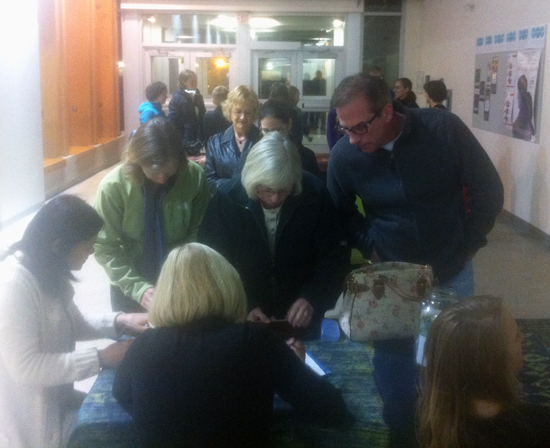
That’s a small miracle, especially when you consider how many other things, including a Revelstoke Coffee House event, were on offer that evening.
Radio Bintumani is a tiny rural station in northern Sierra Leone. It uses a gasoline generator to power its operations, hence the decision to send it money to purchase fuel. Started in 2003 after a vicious and ugly civil war it gets by using volunteer staff and broadcasts between 7 am and 12 pm and again between 4 pm and midnight.
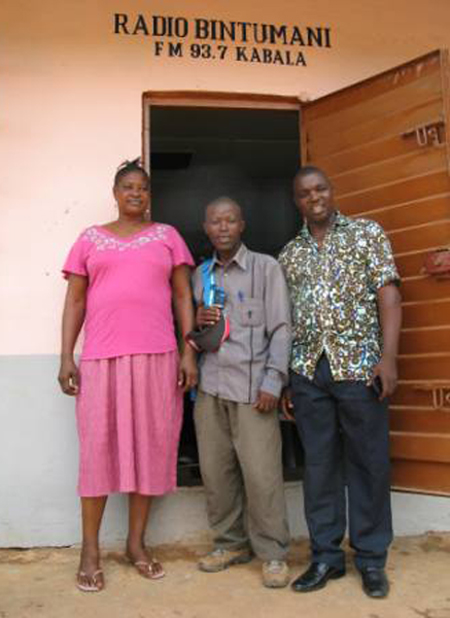
Here’s what an online news source, Sierra Leone 365, had to say about it: “(Located) in one of the least developed districts in Sierra Leone, Radio Bintumani’s programs are aimed at changing societal attitudes. Men are sensitized about the rights of women and warned against domestic violence. Kids have their own program, Children’s Forum Network, where issues affecting them are discussed. Radio Bintumani also has programs that discuss women’s issues, teenage pregnancies and increased educational opportunities for girls. “We encourage teenage girls who are forced out of school and into early marriage to come forward and report to us,” said (Station Manager Kemoh Jango) Daramy.
Siince the Ebola epidemic began Radio Bintumani has been broadcasting factual public health information to its audience in an effort counter the terrifying rumours and half-truths that are spread by word of mouth.
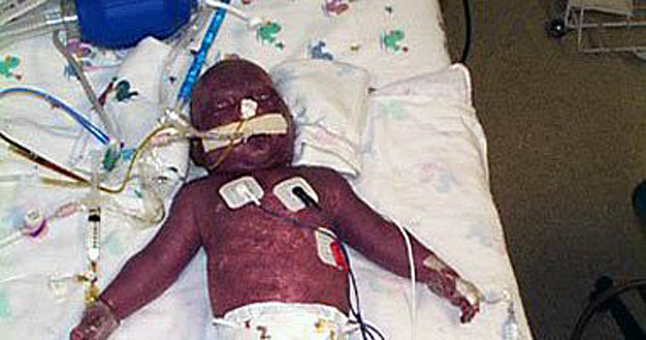
The film night at the Performing Arts Centre featured a couple of interesting touches. As soon as you walked through the door you were met by three young people. Kobe Brunetti, Annabelle Thomas and Veronica Cadden. They eagerly helped you re-enact a now-common step in Sierra Leone of washing your hands in diluted chlorine bleach before you enter a building. Why chlorine bleach and not the hand sanitizers you see in Canadian hospitals? Bleach is cheap and it can also be used to purify water — something you can’t do with a purpose-made sanitizing soap.
This Canadian film by David Belluz documented the heroic efforts of local nurses and doctors at St. Mary’s Hospital in Gulu, Uganda. 12 nurses died tending hundreds of patients who overwhelmed the small hospital’s capabilities. It is a moving testament to the human compassion and perseverance.
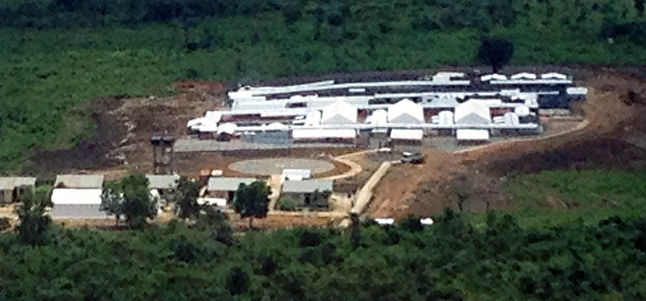
If you missed the film you can still watch it — For free! — on Vimeo. You can do just that by going to the Vimeo player at the end of the story.
You can also donate money to help Médecins Sans Frontières. And if you’d like to help out that tiny radio station in northern Sierra Leone, please contact Erin Wilkins at ewilkinssl@gmail.com or Laura Stovel at lstovel0@gmail.com. Laura MCed the showing and sat on the panel with Erin and her husband Travis, and Dr. Richard Currie.
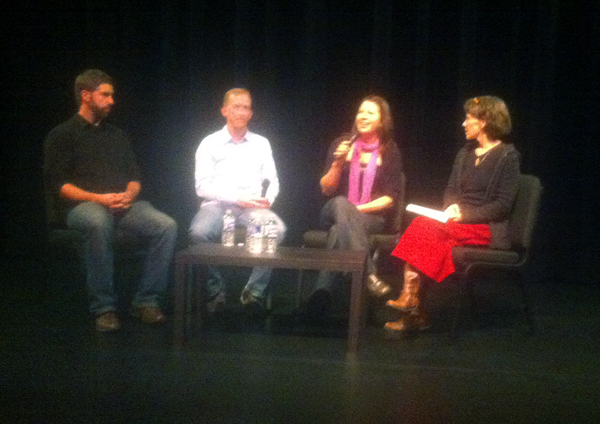
They answered questions about ebola and West Africa in general and Sierra Leone in particular as they had all spent time there.
This event was a marvelous example of what local people can accomplish to help out on a global scale.
Ebola War from David Belluz on Vimeo.
